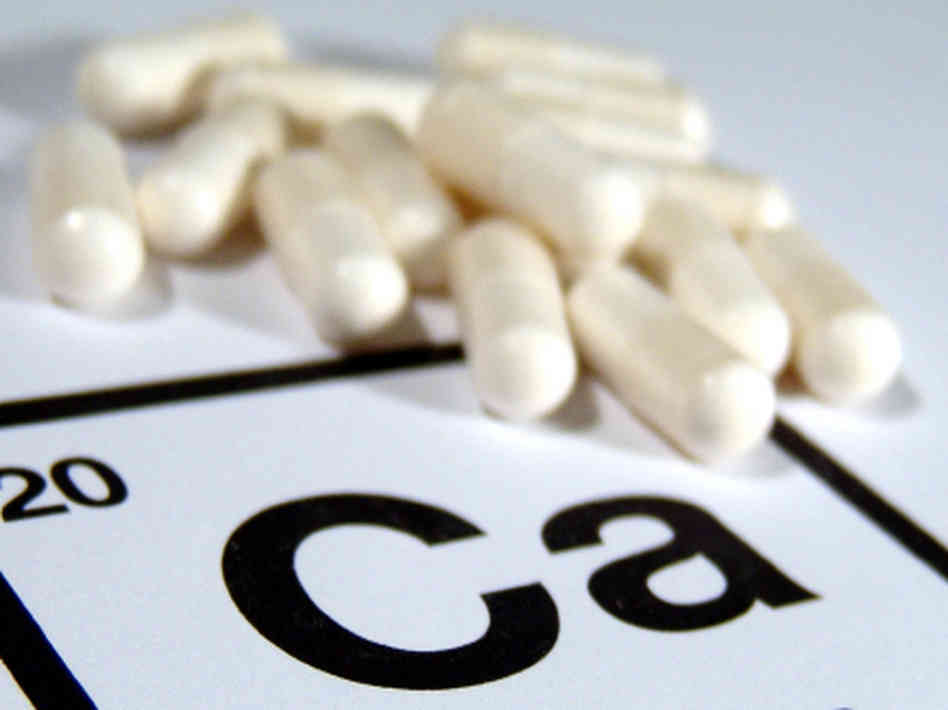
Don’t worry. The Best BCAA are not the result of a bad dream after eating alphabet soup. These are vital aspects to your health. You need to check these out now!
I’m confident that the majority of people are by now aware that protein is vital for the hard training athlete or fitness enthusiast.
Time spent in the gym will be enhanced by that post workout protein shake we all drink. But fewer people may know what that shake is actually made up of. I hope that the following info clears up some of the common queries and confusion about that vital protein, more specifically, amino acids.
What Are Amino Acids?
When it comes to protein and muscle tissue, they are very much the building blocks. Amino acids also have a huge role to play in physiological processes specifically relating to strength and muscle gains, brain function, mood, energy and recovery. But, that’s not all. They are even vital to fat loss.
You’ll always find them listed on protein powders and many natural protein foods. It is common to think of every protein source as being the same thing, but they aren’t. For example, meat, yogurt, chicken, cottage cheese, fish, and other sources are not all created equally. This is because each of these protein-rich foods has different types and amounts of amino acids. These play a crucial role in your body repairing and building new muscle tissue.
Amino acids are manufactured naturally in the body as what’s known as nonessential amino acids. The nonessential amino acids provide many different functions. These functions include removing toxins, promoting proper brain activity, synthesizing blood cells, providing antioxidants, boosting immunity and providing energy. Without the proper level of amino acids, it’s very easy to become ill, feel sluggish and experience other side effects.
That is especially the case if your training is intense.
What Are Branched Chain Amino Acids?
But now, more relevantly, as the title of this piece suggests, this topic is all about branched-chain amino acids or BCAAs. These are essential amino acids, valine, leucine, and isoleucine. They’re essential. What does that mean? You must get them in your diet. Why? Your body can’t produce it.
As mentioned, amino acids are needed in ample amounts because they are the building blocks of protein and provide many functions connected to energy during and post exercise. These BCAAs aren’t naturally found in your body. They’re consumed through food. When we exercise, there’s a steady decline in the amount of BCAAs in the body. By supplementing, you can prevent this drop from happening during your workout routines. You need ample amounts, but you don’t need excessive amounts.
It’s important to ingest BCAAs on a daily basis. You can, of course, do this through supplementation, but there are many other more natural ways to get those BCAAs. For example, you can get your BCAAs through food, which I’ll get into shortly. Meat and eggs are great sources of BCAAS if you’re not intensely exercising on a regular basis. Supplementation should only be an option for those with low protein consumption. They’re fairly unnecessary for non-active people with high protein consumption, like 1-1.5g/kg a day or more.
They’re fairly unnecessary for non-active people with high protein consumption, like 1-1.5g/kg a day or more.

What Are Some Benefits of The Best BCAA?
Not just limited to the health and fitness world, branched-chain amino acids are also useful in many other ways other than your in your workout schedule. They are often used to treat brain conditions, Lou Gehrig’s disease, liver disease, cancer patients, the elderly and even those who are forced to endure bed rest. But, their use extends far beyond the realm of the elderly and sick.
Don’t misunderstand. Healthy people do use BCAAs. They use them to boost concentration and fight the onset of fatigue. Athletes also benefit. How? BCAAs reduce the breakdown of muscle and boost athletic performance.
Exercise boosts serotonin levels. This is thought to promote fatigue. That’s where BCAAs come in handy. Why? It’s believed that BCAAs can reduce serotonin levels. In effect, this cancels the fatigue factor and boosts athletic performance. Many studies support this. But, there have been other studies supporting the contrary. Those ones found that BCAAs have no impact and the amino acids are thought to be useless.
So whom do you believe?
Well, let’s look at the facts. BCAAs are metabolized mainly in your skeletal muscles. Other amino acids become metabolized in your liver. As a result, some people believe they have to take some form of BCAA supplements when doing tough workouts. Of course, BCAAs frequently touted to decrease muscle soreness, help repair muscles and boost muscle performance. Some data suggests that taking BCAA supplements pre and post exercise has positive effects for reducing exercise-related muscle damage and promoting the onset of muscle-protein synthesis.
People use BCAA supplementation because it can promote muscle protein synthesis and, in turn, increase muscle growth over time. It’s also used to prevent fatigue in workout newbies or training athletes. The amino acid, leucine, is important in muscle protein synthesis. Isoleucine is responsible for the induction of glucose absorption into cells. But there’s still further research that needs to be done to determine valine’s specific place in BCAA supplementation.
Also, this serum decline causes a tryptophan influx in the brain. This triggers the production of serotonin, which, as I mentioned, then causes fatigue. By upping BCAAs in the body, this process can be avoided and fatigue can also be avoided too.

How Much BCAA to Take?
When it comes to the recommended consumption, your body gets its BCAAs from protein found in meals. The best sources include legumes, dairy products and, of course, meat. If you have a balanced diet featuring ample protein, then you’ll get enough BCAAs, even if you are someone who is a strenuous exerciser.
No amount over 2.0 g per kilogram of weight will be beneficial according to the results of nitrogen balance studies. As long as you’re eating enough of the dietary macronutrients like carbs, fats and proteins, then your muscle and lean body mass should be spared. Humans need adequate amounts of amino acids in the body, but it’s important not to overdo the consumption of amino acids. More is not better in this case. Don’t make the mistake.
Excessive amounts are not good!
So, the most common reason for taking BCAAs, and what we’re concerned with here, is to boost performance and reduce muscle breakdown. That is the reason for taking them in the form of supplementation.
They’re thought to improve performance because exercise causes an increase in serotonin levels in the brain, and there’s resulting fatigue after training sessions. BCAAs are actually known to decrease those serotonin levels, and so, they can stop the fatigue and then enhance exercise performance. They can reduce muscle breakdown because they are processed primarily in the skeletal muscles, as opposed to the other amino acids – metabolized in the liver.
And, because of this, BCAAs are often believed to help in muscle repair, decreasing muscle soreness and increasing muscle function.
There has recently been a lot of data that shows BCAA supplementation being helpful both before and after exercise in terms of decreasing exercise-induced muscle damage and supporting muscle protein synthesis. As well, the intake of BCAAs could promote an anabolic hormone profile, which causes muscle repair after tough workouts.
What Are The BCAA Side Effects?
So, there seems to be a whole host of benefits. The question is: Are there any possible side effects or risks?
Well, the linked risks with taking BCAAs appear to be only when people use them constantly for up to six months.
These risks include fatigue and loss of coordination. For healthy people who possibly aren’t exercising strenuously, excess levels of BCAAs can be harmful. Keep that in mind. Also, any athlete on a higher protein diet should always be hydrated.
Why?
Simple, nitrogen excretion during the breakdown of protein could also result in water loss.
But supplementation alone may not be the one and only way to get your quota and the role of whole food sources of BCAAs is often overlooked. Chewing your BCAAs in food form will never be as easy as simply mixing a powder in water. But, as I’m always saying, as humans, we can’t and shouldn’t live on supplements alone. If you’re looking to raise your diet’s anabolic potential, have a look at this breakdown of the BCAA content in some popular protein sources.

Popular Food BCAA Content
| Food | Serving | Protein | BCAAs | Leucine | Isoleucine | Valine | BCAA | Leucine |
| (per g of protein) | ||||||||
| Chicken Breast | 6oz | 36g | 6.6g | 2.9g | 1.8g | 1.9g | 0.18 | 0.08 |
| 95% lean beef | 6oz | 36g | 6.2g | 2.8g | 1.6g | 1.8g | 0.17 | 0.08 |
| Canned Tuna | 6oz | 33g | 5.6g | 2.5g | 1.5g | 1.6g | 0.17 | 0.08 |
| Wild Salmon | 6oz | 34g | 5.9g | 2.7g | 1.5g | 1.7g | 0.17 | 0.08 |
| Flank Steak | 6oz | 36g | 6.2g | 2.8g | 1.6g | 1.8g | 0.17 | 0.08 |
| Tilapia | 6oz | 34g | 5.9g | 2.7g | 1.6g | 1.6g | 0.17 | 0.08 |
| Turkey Breast | 6oz | 40g | 5.2g | 2.8g | 1.1g | 1.3g | 0.13 | 0.07 |
| Egg | 1 | 6.3g | 1.3g | 0.54g | 0.3g | 0.4g | 0.21 | 0.09 |
| Egg White | 1 | 3.6g | 0.8g | 0.3g | 0.2g | 0.3g | 0.23 | 0.09 |
| Roasted Peanuts | 6oz | 12g | 6.8g | 3.1g | 1.7g | 2g | 0.14 | 0.07 |
Any of these listed foods are good sources of BCAAs. Feel free to can pick and choose which best suits you, your preferences and your lifestyle.
BCAA Supplements Lowdown
Although varied, it has been proven in studies that BCAAs have benefits to both athletes and ill patients. The former is mainly for the recovery during post-training with the repairing of muscle damage or preventing fatigue. BCAAs are found in proteins and, since the body doesn’t produce them naturally, it’s important to keep a high protein based diet when exercising.
You can get your intake of these BCAAs and proteins by eating meats, dairy, and legumes. Or, if you have a low protein diet, you can take BCAA supplements. Studies have been shown it has an effect. It is an effective way to promote muscle recovery. That’s why whether or not they work will be based on your own experience with them.
These BCAAs can be consumed all throughout the day, or before, during and after gym workouts. The best news is that they are suitable for pretty much one and all. Active people such as those taking part in serious intense training or exercise are generally the main ones who consume them.
From my experience, if you’re thinking of taking this supplement, the best way to take it is five grams, two to four times per day.
They can be consumed by mixing with water or, for best results, add two small scoops to your pre/post workout shake.
When it comes to their safety, it would seem that a six-month regimen of BCAAs appears to be safe for most.
After that, I’d suggest you take some time off and stick to straight, good quality nutritious foods for a while. The side effects may include fatigue and loss of coordination.
In healthy people, excess protein hasn’t been proven to be harmful in many studies. With that said, athletes and gym goers on high protein diets should always stay well hydrated.
Why?
Water loss can be increased from nitrogen excretion during protein breakdown.
Conclusion
Are BCAAs right for you?
Only you have the answer. It depends on your needs. If you are like most people who visit the site, chances are they could be helpful. From my experience, BCAAs are a great addition to any strength building and fitness-based regime. Use them cautiously. With that said, you can be comfortable in the fact that they are one of the safest supplements on the market today to aid recovery.
By Keith Cormican, RD
Latest posts by Terry M (see all)
- Garage Gyms - Aug 1, 2018
- Kettlebells – Why They Should Be Added To Your Routine. - Jul 24, 2018
- Weight Belts: What Are They Really For? - May 31, 2018












[…] the BCAAs, you want to maximize how your body absorbs protein and energy. The branch chain amino acids can […]
[…] proteins will contain creatine and BCAAs (branch chain amino acids), both of which are helpful with your workout, but if you’re body […]
[…] all amino acid supplements are strictly BCAA supplements, of course, but most of them contain BCAAs as core ingredients. Every amino acid supplement is different, and many advancements in health […]
Hiiii..Thank you very much for sharing this great useful insights about BCAAs. I was recently advised by my gym trainer to start using bcaas and whey protein. Can you please tell some core differences between both. I mean should I take these supplements. Do they have any kind of side effects.
[…] best supplements to aid your muscle-bound career, fortunately, are widely available: You can find BCAA capsules, creatine pills, fish oil capsules, and diet pills at your local nutrition […]
I choose to get mine from Supplements (https://store.bpisports.com/products/best-bcaa). Has anyone tried to not use supplements and focus on a Bcaa diet?
Supplements maintain general health, support mental and sports-related performance.